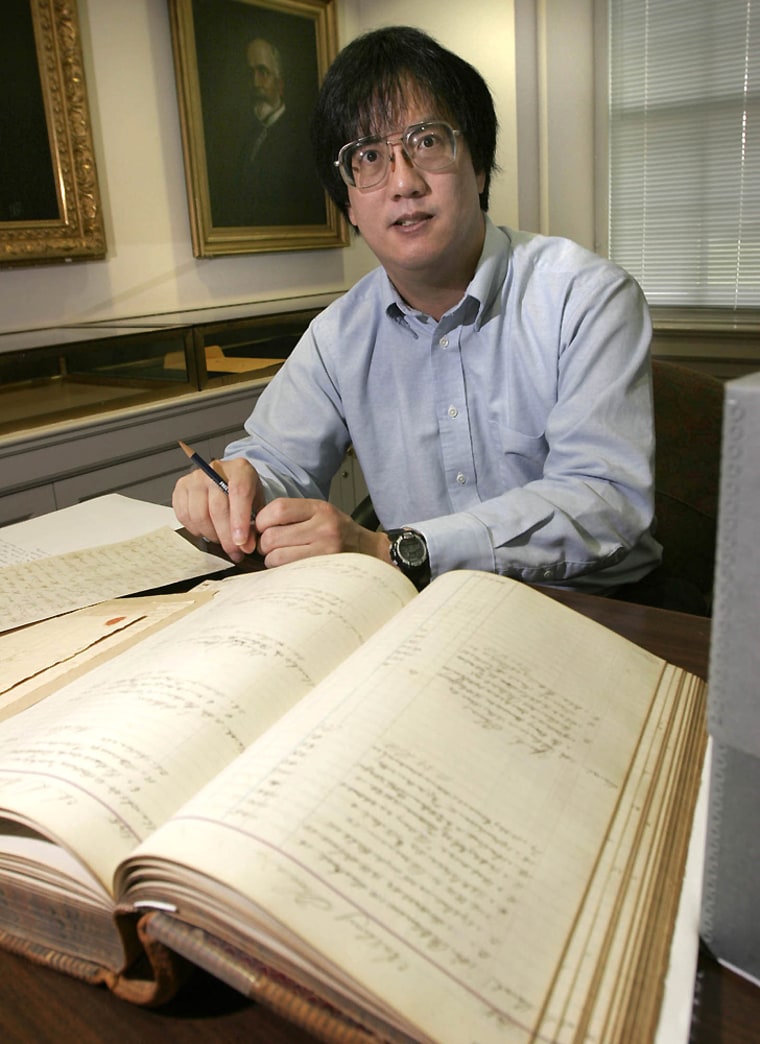In the days before satellite imaging, wind speed gauges and The Weather Channel, hurricane tracking was the province of plantation owners and ship captains.
Plantation diaries and Royal Navy ship logs, along with newspaper clippings and history books, are proving valuable to researchers looking to create a history of Atlantic Coast and Gulf Coast hurricanes that goes back as far as the American Revolution.
A comprehensive, historical database could shed more light on the Atlantic weather cycle that leads to periods of active hurricane seasons such as the one many coastal communities are experiencing now. It is also important to have the historical data so communities won't assume they are immune from being hit by multiple strong storms in short periods of time, said Cary Mock, a University of South Carolina weather researcher.
For example, South Carolina could be hit by two major hurricanes in one year, the New Orleans area could be hit by six strong storms in a decade and a hurricane could strike New York City.
"If it happened in the past, something like that can definitely happen in the future," Mock said.
The National Hurricane Center's official hurricane database goes back to 1850, but Mock has a three-year National Science Foundation grant to identify land-falling storms from New England to the Caribbean dating before the 19th century.
Mock is part of an emerging field of paleotempestology, which has gained popularity as recent hurricane seasons have grown stronger.
Researchers know there was a period of strong hurricane seasons in the 1940s and 1950s. Coincidentally, a buildup in coastal development coincided with a relatively inactive hurricane period that researchers think ended in the mid-1990s.
Mock's research will take him to the United Kingdom to study Royal Navy ship logs, to state historical societies to read the diaries of plantation owners and to newspaper archives for reporters' accounts of "September gales" that were not even identified as hurricanes until the mid- to late-1800s.
Some potential sources are better than others.
For big storms that hit heavily populated areas, such as the possible Category 3 hurricane that struck South Carolina in 1922, newspaper articles were helpful. But such reports cannot always be trusted without other corroborating sources.
"Every storm is the worst storm they had ever seen," he said. "That's why you need different historical sources."
His prior research has focused on South Carolina and other southeastern states. With the new grant, he plans to take a closer look at New England. Ship logs from the American whaling industry and the U.S. Navy should help paint a more complete picture of tropical storms going back to the 1700s.
Mock calls President Thomas Jefferson one of the first early weather observers. The plantation owner kept a daily weather diary "that is pretty good."
The Rev. Alexander Glennie of Georgetown kept a detailed weather record from about 1830 to 1880. The daily record even included barometric pressure _ a key hurricane indicator. His diary is preserved at the College of Charleston.
Mock also hoped to reconstruct the hurricane history of the New Orleans area. Some French logbooks have been kept in Houston but he fears many of the archives in New Orleans may have been lost in Hurricane Katrina.
"I'm a little bit worried now that one of them was hit pretty hard," he said. "I heard some reports about papers flying out of the window."
